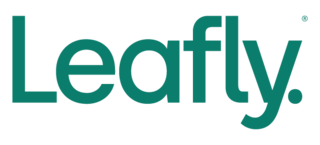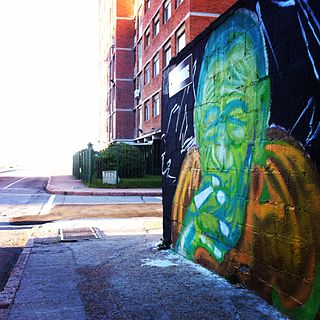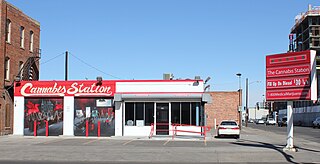
420, 4:20, or 4/20 is cannabis culture slang for marijuana and hashish consumption, especially smoking around the time 4:20 p.m., and also refers to cannabis-oriented celebrations that take place annually on April 20.

Seattle Hempfest is an annual event in the city of Seattle, Washington advocating the legalization of cannabis. Vivian McPeak serves as the organization's executive director. Founded in 1991 as the Washington Hemp Expo, a self-described "humble gathering of stoners" attended by only 500 people, and renamed the following year as Hempfest, it has grown into a three-day annual political rally, concert, and arts and crafts fair with attendance typically over 100,000. Speakers have included Seattle city council member Nick Licata, actor/activist Woody Harrelson (2004), travel writer and TV host Rick Steves (2007), (2010), 2012 Green Party speaker Jill Stein, Dallas Cowboys center Mark Stepnoski (2003), and former chief of the Seattle Police Department Norm Stamper (2006). Hempfest has also in recent years attracted such well-known performers as Fishbone (2002), The Kottonmouth Kings (2004), Rehab (2006), and Pato Banton (2007) to its five stages spread throughout Myrtle Edwards Park and Elliott Bay Park, on Seattle's waterfront.

Marc Scott Emery is a Canadian cannabis rights activist, entrepreneur and politician. Often described as 'the Prince of Pot', Emery has been a notable advocate of international cannabis policy reform, and has been active in multiple Canadian political parties at the provincial and federal levels. Emery has been jailed several times for his cannabis activism.

The legal history of cannabis in the United States pertains to the regulation of cannabis for medical, recreational, and industrial purposes in the United States. Increased restrictions and labeling of cannabis as a poison began in many states from 1906 onward, and outright prohibitions began in the 1920s. By the mid-1930s cannabis was regulated as a drug in every state, including 35 states that adopted the Uniform State Narcotic Drug Act. The first national regulation was the Marihuana Tax Act of 1937.

Cannabis in Oregon is legal for both medical and recreational use. In recent decades, the U.S. state of Oregon has had a number of legislative, legal, and cultural events surrounding use of cannabis. Oregon was the first state to decriminalize the possession of small amounts of cannabis, and among the first to authorize its use for medical purposes. An attempt to recriminalize possession of small amounts of cannabis was turned down by Oregon voters in 1997.

In the United States, the use and possession of cannabis is illegal under federal law for any purpose, by way of the Controlled Substances Act of 1970. Under the CSA, cannabis is classified as a Schedule I substance, determined to have a high potential for abuse and no accepted medical use – thereby prohibiting even medical use of the drug. However, at the state level policies regarding the medical and recreational use of cannabis vary greatly, and in many states conflict significantly with federal law.

Washington Initiative 502 (I-502) "on marijuana reform" was an initiative to the Washington State Legislature, which appeared on the November 2012 general ballot, passing by a margin of approximately 56 to 44 percent. Originally submitted to the Washington Secretary of State during the summer of 2011, enough signatures were collected and submitted by December to meet the required 241,153 signatures, sending it to the legislature. When the legislature adjourned without action in April, Initiative 502 automatically advanced to the November 2012 general ballot. It was approved by popular vote on November 6, and took effect over the course of a year, beginning with certification no later than December 6, 2012. Along with a similar Colorado measure, Initiative 502 was credited for encouraging voter turnout of 81%, the highest in the nation.

Leafly is a cannabis website. The company says it has more than 15 million monthly visitors and 40 million page views, which includes website and mobile application traffic. Leafly provides a wide range of information on cannabis, including where to buy it through a list of dispensaries in the US and Canada, information on various strains, user ratings and user inputs on specific reported effects using crowdsourcing to generate reviews. The company is headquartered in Seattle, Washington and from 2012 to 2019 was owned by Privateer Holdings, a private equity firm focused on the emerging legal cannabis industry. Leafly is now a wholly independent company.

The legal history of cannabis in the United States began with state-level prohibition in the early 20th century, with the first major federal limitations occurring in 1937. Starting with Oregon in 1973, individual states began to liberalize cannabis laws through decriminalization. In 1996, California became the first state to legalize medical cannabis, sparking a trend that spread to a majority of states by 2016. In 2012, Washington and Colorado became the first states to legalize cannabis for recreational use.

Cannabis is legal in Uruguay, and is one of the most widely used drugs in the nation.

A marijuana vending machine is a vending machine for selling or dispensing cannabis. They are currently in use in the United States and Canada and some may be located in secure rooms in marijuana dispensaries. Some may be operated by employees after a fingerprint scan is obtained from the patient. In Canada in 2013, marijuana vending machines were planned to be used in centres that cultivate the drug. At least three companies are developing the vending machines.
Alaska Measure 2 was a successful 2014 ballot measure in the U.S. state of Alaska, described as "An Act to tax and regulate the production, sale, and use of marijuana." The measure went into effect on 24 February 2015, allowing Alaskans age 21 and older to possess up to an ounce of cannabis and six plants, making Alaska the third state to legalize recreational marijuana, following Colorado and Washington. Oregon and Alaska both voted in legalization on Election Day 2014, but Alaska preceded Oregon in enacting their legislation.

Cannabis on American Indian reservations historically largely fell under the same regulations as cannabis nationwide in the United States. However, the August 2013 issuance of the Cole Memorandum opened discussion on tribal sovereignty as pertains to cannabis legalization, which was further explored as the states of Washington and Colorado legalized marijuana. A clarifying memo in December 2014 stated that the federal government's non-interference policies that applied to the 50 states, would also apply to the 326 recognized American Indian reservations. U.S. Attorney for Oregon, Amanda Marshall, stated that the clarification had been issued in response to legal questions from tribal nations, but that only three unnamed tribes, in California, Washington state, and "the Midwest" had stated explicit interest in legalizing.

Uncle Ike's Pot Shop is an establishment in Seattle, Washington, licensed by the Washington State Liquor and Cannabis Board to sell cannabis to the public. It opened on September 30, 2014 and was the second cannabis retailer in Seattle, after Cannabis City. As of 2016 it led the state of Washington in cannabis retail sales at over $1 million per month. The proprietor is Ian Karl Eisenberg, aka "Uncle Ike". The business is both praised for being the first to inform consumers about pesticides in their product, and criticized for contributing to gentrification of the neighborhood it is located in, Seattle's Central District. When it opened, the shop was said to be "built like a fortress" with security provided by a company owned and staffed by ex-military service members.

Cannabis in Washington relates to a number of legislative, legal, and cultural events surrounding the use of cannabis. On December 6, 2012, Washington became the first U.S. state to legalize recreational use of marijuana and the second to allow recreational marijuana sales. The state had previously legalized medical marijuana in 1998. Under state law, cannabis is legal for medical purposes and for any purpose by adults over 21.

Vivian McPeak is an American peace, social justice activist, cannabis rights activist, and musician. In Seattle, Washington. Mcpeak founded the Peace Heathens in 1988, a Seattle community action group. McPeak and Gary Cooke organized the first Seattle Hempfest in 1991, the 2-day event has grown to become the world's largest cannabis policy reform rally. McPeak, who is director of Hempfest, performed with the rock band Stickerbush in the 1980s.

On October, 17, 2018, cannabis was legalized in Canada for recreational and medical purposes. It was already legal for medicinal purposes, under conditions outlined in the Marihuana for Medical Purposes Regulations issued by Health Canada, and for seed, grain, and fiber production under license by Health Canada.

The green rush is an ongoing global economic event that began on December 6, 2012, when cannabis was legalized in the US state of Washington; Colorado's legalization took effect four days later. While still illegal federally in the United States, the actions of these two state governments signaled the opening of a market projected to be worth US$48+ billion globally by 2027. As of 2019 the cannabis industry had created over 250,000 jobs. However, cannabis companies have been a mixed investment success, with many experiencing plunging stock prices, massive layoffs, and failure to meet investor expectations.















